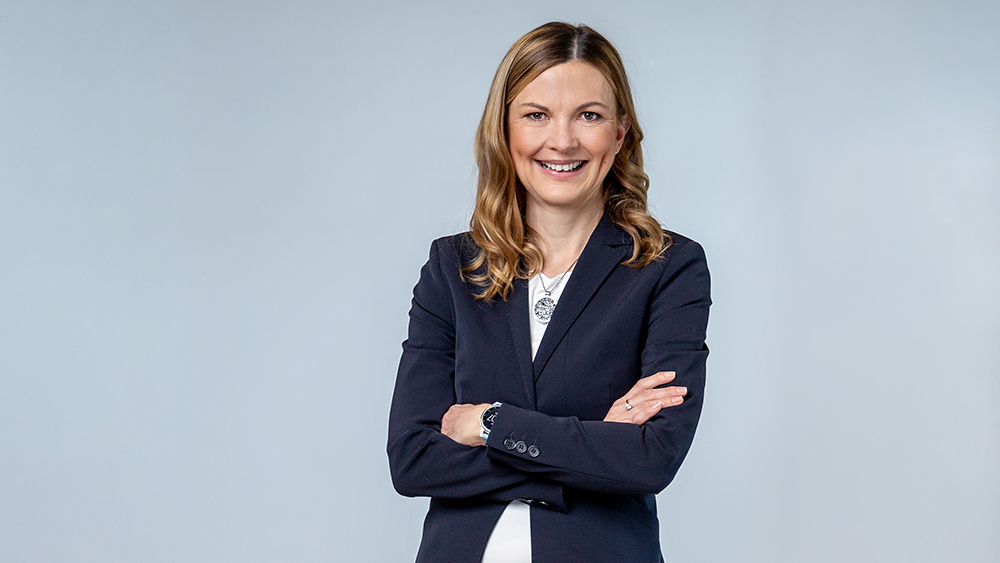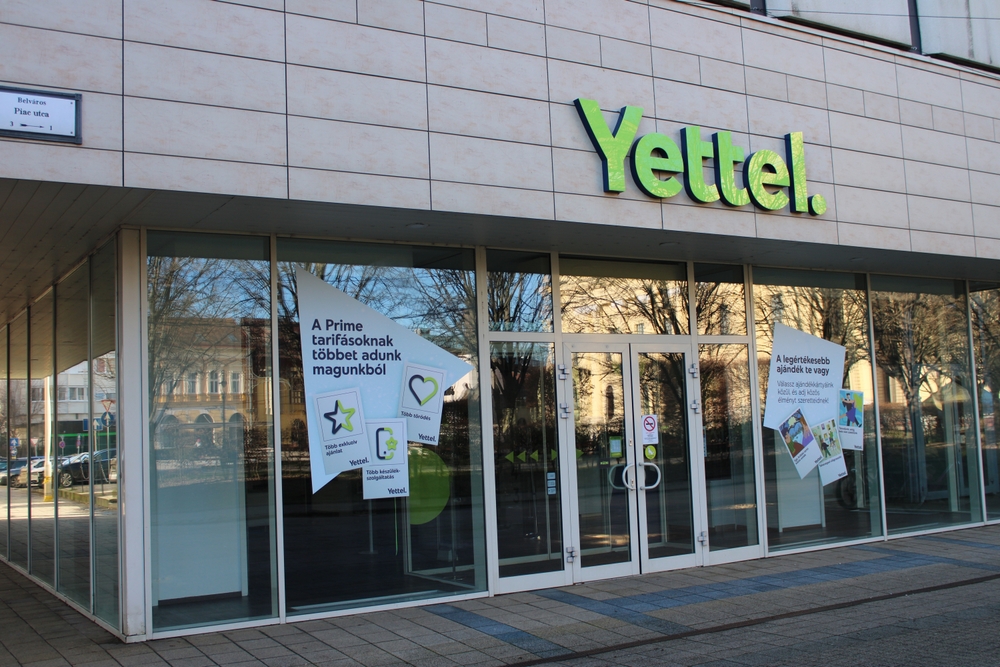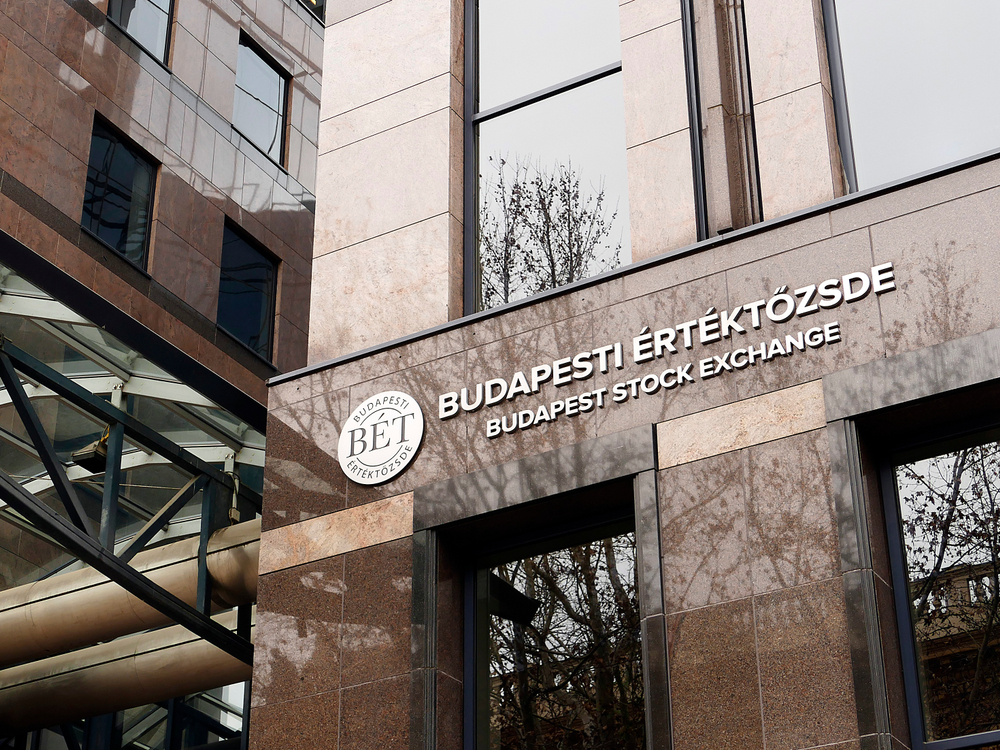Vodafone Using Earth Day to Inspire Itself and Others

Amanda Nelson
Earth Day has always been an essential event for the Vodafone Group, never more so than in 2022. The Budapest Business Journal discusses why, and what to look for from the Hungarian business with its CEO Amanda Nelson.
BBJ: Let’s start with the obvious question. This year’s Earth day falls the day this paper is published, April 22. How will Vodafone Hungary be marking it?
Amanda Nelson: The Vodafone Volunteer Community, under the leadership of horticulturalist Mariann Beh (owner of the Bazsalikomoskert [Basil Garden] webshop), will plant 2,000 yellow and 1,000 blue flowers in Kecskemét. The message is clear: let’s bring an end to the war. The flowers will be planted in the shape of a peace symbol to reinforce this message.
BBJ: On April 6, Vodafone Group held its Digital Enabler Showcase in Brussels. Who was the audience, and what was the purpose?
AN: Decision-makers from EU institutions, university professors, and media representatives, among others, attended the event and were presented with real-life examples showing how the EU is going through the digital and green transitions. Participants were shown how the latest 5G technologies are being used in healthcare, agriculture, education, smart cities and SMEs. To give just a few examples, live 3D heart modeling could have an important place in future healthcare, along with connected hospital equipment, IoT solutions, cloud-based sustainable management and smart transport safety technologies.
BBJ: Ahead of the Brussels showcase, Deloitte drafted research for Vodafone Group to update progress toward the European Union’s Digital Decade targets. What were the results?
AN: This EUR 7.5 billion European Commission program aims to accelerate digital transformation by co-funding the research, development and deployment of innovative technologies from 2021 to 2027. The research showed that while significant progress has been made in recent years, both in Hungary and in the European Union, much more work is still to be done. We must not stall the development of high-capacity networks and 5G; we need to continue to pay particular attention to developing the digital skills of the adult population and, in this context, boosting the number of IT professionals. Last but not least, we must also support the digitalization of SMEs, as well as the digital advancement of various public services.
BBJ: What is Vodafone doing to reach the Digital Decade goals?
AN: We are trying to do our utmost to make the above goals realistically achievable for both businesses and society at large; as a technology company, we have a crucial role and responsibility in this. We are continuously developing our digital infrastructure network: our ultra-high capacity, ultra-fast and secure network is available in an ever-larger part of the country. In recent years, we have made significant advances in 5G developments, whether increasing public coverage or private 5G network investments that bring about a new era in industry. We also support the development of 5G-based innovations through university collaborations and 5G labs.
Digital skills development also plays a key role in our company’s operation: in recent years, Vodafone Hungary Foundation has launched e-learning courses for children, teachers and parents to improve their digital competencies, and we are also supporting boosting the number of IT professionals through our university partnerships.
Similarly, we are also paying particular attention to the digitalization of SMEs in Hungary. We have recently launched V-Hub, a business advisory team and platform designed to help Hungarian entrepreneurs exploit the opportunities offered by the digital world. We’re also very proud that Vodafone was the first in Hungary to launch a “Marketplace” digital platform. This website provides essential services to Hungarian businesses, is easy to use, and facilitates the flexible customization of business applications, allowing entrepreneurs to spend more time focusing on their business. In addition, we have joined the Hungarian Chamber of Commerce and Industry’s Modern Enterprises Program as an expert service partner. Under this partnership, companies registered for the program get unique discounts on a range of services, including cloud-based solutions, as well as vehicle and fleet tracking services.
We are also launching or partnering in several other initiatives to make people’s lives easier through digitalization. We believe that through all this, we are moving closer day by day to a more digital and sustainable way of operation.
BBJ: What specific green targets have Vodafone and Vodafone Hungary set themselves, and what is the progress towards achieving these?
AN: We are supporting the protection of our planet through several initiatives both globally and locally, and I would just highlight the most important ones. In 2020, Vodafone Group announced that it would run its European network 100% on renewable energy by July 2021, at the latest. We are very proud that Vodafone Hungary was the first to deliver on this commitment: since October 2020, our customers have been able to enjoy services using wind and hydro energy only.
We are also trying to engage our customers through additional green measures. In early 2020, for example, we halved the size of our SIM card holders, saving more than two tonnes of plastic, and in 2021 we reached another milestone: we made eco-friendly eSIMs available to customers purchasing compatible devices, and we provide ecoSIMs made from 100% recycled plastic for non-eSIM-compatible machines.
We try to involve our employees as well as our customers in our environmentally friendly operations. We have started replacing our entire fleet of more than 400 vehicles with environmentally-friendly models.
BBJ: Can we expect further green announcements, globally and locally?
AN: Our goal is to reduce the group’s carbon footprint to net-zero by 2030 and extend this to our whole network of suppliers and partners by 2040. We also have several local targets, including a commitment to turn our entire fleet of cars electric by 2025.
BBJ: Finally, unrelated to Earth Day, but concerning the neighboring war in Ukraine, what is Vodafone doing to help those affected.
AN: Practically since the day the war broke out, we have been working to support those affected by the war in Ukraine, as well as refugees. We have made roaming, calls and SMS messaging free for our customers in Ukraine, as well as calls and SMS messages from Hungary to Ukraine. We have installed Wi-Fi hotspots and phone charging stations at border crossing points, railway stations, and refugee shelters and set up temporary Vodafone stands at key junctions, where we give free SIM cards to Ukrainian refugees. We also considered it key to provide access to relevant information, so we made Ukrainian-language TV channels available on Vodafone TV; 1+1 International, Ukraine 24 and Nickelodeon Ukraine Pluto TV.
We also try to help financially and by way of physical volunteering. The Vodafone Hungary Foundation is providing a total of HUF 55 million to support the work of charity organizations and the integration of refugees staying here in the long run. We felt that it was important to involve our colleagues in the aid effort; therefore, we gave them the opportunity to help by providing financial support or physical volunteering.
We also try to support those who decide to settle in Hungary and want to work here. We are offering fast-track recruitment for Ukrainian or other nationals who have been displaced due to the crisis and are suitable candidates for specific jobs. We also want to help Ukrainian entrepreneurs start a business in Hungary in the hope of a fresh start between March and May. They will be able to use specific unlimited mobile voice and internet packages free of charge for the first six months, thus making it easier to start their new business.
This article was first published in the Budapest Business Journal print issue of April 22, 2022.
SUPPORT THE BUDAPEST BUSINESS JOURNAL
Producing journalism that is worthy of the name is a costly business. For 27 years, the publishers, editors and reporters of the Budapest Business Journal have striven to bring you business news that works, information that you can trust, that is factual, accurate and presented without fear or favor.
Newspaper organizations across the globe have struggled to find a business model that allows them to continue to excel, without compromising their ability to perform. Most recently, some have experimented with the idea of involving their most important stakeholders, their readers.
We would like to offer that same opportunity to our readers. We would like to invite you to help us deliver the quality business journalism you require. Hit our Support the BBJ button and you can choose the how much and how often you send us your contributions.







